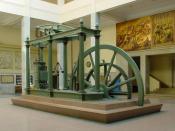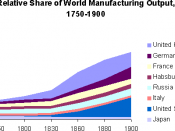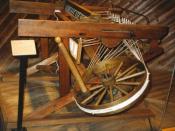1.1 IntroductionRecently, more than half of the majority of workers of the western world are knowledge workers(Generation Y), they can finish the same work within less time comparing with Generation X. TheseGeneration Y attempt to do a job efficiency with high-tech equipment, as for them and companies,jobs will be better compensated according to the task performed regardless of the time spentachieving the outcome.
This eassy will compare tasks-based job with hours-based job.
This subject can be looked at under the following headings:-- the concept of jobs defined in history-- the reasons for defining a job by hours and tasks-- comparesion of different kinds of companys and organizations which suitable for tasks-based joband hours-based job-- the trend of defining a job by tasks2.1 the concept of jobs defined in historyCompensating employee for what they actually do rather than the hours they work is not a new idea.
In fact this idea has a long history and even it is a oldest method to define a job. The method ofcompensating employee switched a few times in the history. Why did it switch? The most probabilityreason is developing of socio-economy and efficiency. In different stages of economy, we havedifferent methods to define a job. In other words, using task-based method or hour-based methodboth depend on social efficiency. Economy decides the trend of how to define a job.
In either agricultural economies and craft-based economies, rewards system were related to outputcreates the amount of produce, the product quantity and quality of craft. Even in the early time ofthe industrial revolution, workers were paid by individual piece rate. At that period, in most offirms or organizations, there were no base pay; it means that how much you did are how much you getpaid. As a report from Times(15 Oct, 2003) shows,


